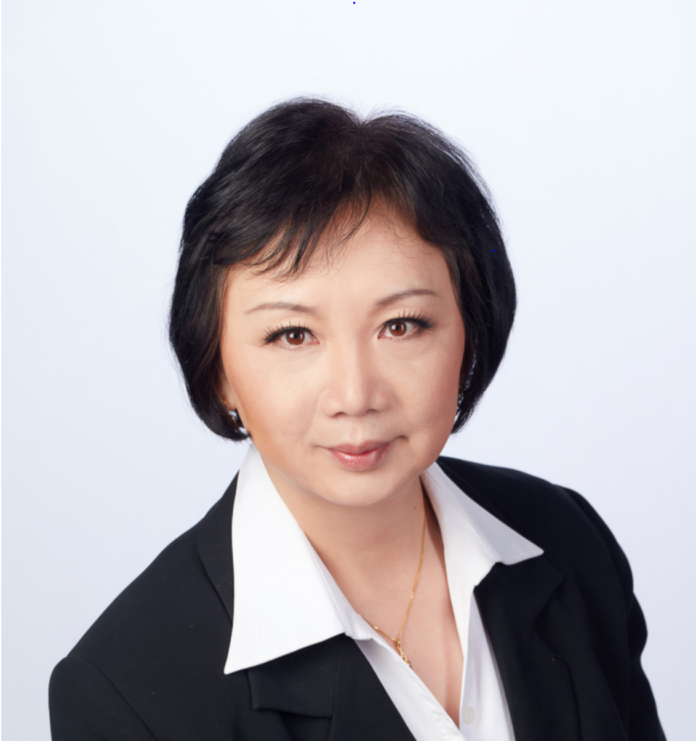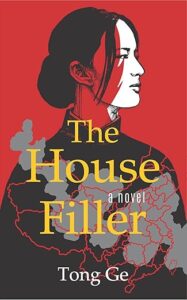From Borrower to Writer: My Library Tale Tong Ge
Born and raised in China, I grew up on a college campus where my father was a professor. The college had a library, but it was not for children; it was for faculty and students concerning their academic studies. Being in a small town, we didn’t have a local library either. Besides, the Great Proletarian Cultural Revolution started when I was four years old. Classes were suspended, teachers persecuted, books burned, and knowledge condemned. This cultural destruction lasted for 10 years. When Chairman Mao died, the university entrance exam was reinstated, and millions of Chinese youths had hope for a better future for the first time in a long time.
When I was in college, we also had a library only for academic studies. Now in the big city, there was a big library in the city center, but one could only go there to read the books; you could not borrow them. Since it was far from the college campus where I resided, I seldom went there. But I saved every penny to buy books. Students also lent books to each other to quench our thirst.
In 1988, I came to Canada as an international student and studied at a graduate school at the University of Saskatchewan. I just loved the library on campus. I remember the first time I saw the washroom in the library, I marveled at its cleanliness. Not only did it not have any odor, but there was also a sofa where one could lay down to rest. I often stayed in the library until the wee hours, but all my efforts went into academic study. I simply didn’t have the time to read “fun books.”
After graduation, I had a little time to read fiction. I always thought the first time I borrowed books from a local library was around the year 2000, that is, until I went through my old diaries recently. An entry shows that on February 27, 1993, I returned the following books to the Swift Current Public Library:
- Twelve Prairie Poets—edited by Lawrence Ricou.
- The New Oxford Book of Canadian Verse—chosen by Margaret Atwood.
- The Group of Seven and Tom Thomson.
- The Complete Artist: Painting and Drawing Better Landscapes, Still Lifes, Figures and Portraits—Ken Howard.
- The Artist Handbook Series: PAINTING IN WATERCOLOR—Kate Gwynn.
I once dreamed of becoming a painter, but life made other plans for me. You see, my educational background and academic training had nothing to do with arts or creative work. However, I dreamed of becoming a writer since I was in junior high. Wait a moment, did I just say I wanted to become a painter? I guess I wanted to do both, but writing creatively in a second language was unimaginable, so I opted for painting. But as a new immigrant, the pressures of standing on solid ground and making a living didn’t leave any room for my creative dreams.
Then I was injured at work in 2001, suffering repetitive strain injuries in both arms, and I went on disability leave. A year before, a friend had highly suggested I listen to books, but I didn’t start until 2004. Once I did, I was immediately hooked, and I didn’t stop for the next 20 years. I have borrowed thousands of books from the Calgary Public Library. In the beginning, I didn’t know where to get recommendations, so I just went to the library, browsed through the titles, and often borrowed a stack of books at once. I would start a book, and if it bored me, I would just return it. I only finished those that kept my interest.
One time, I borrowed a whole bag of books, put it in a corner of my house, and forgot about it. The old library system was that when a book was overdue, they wouldn’t call you right away. Instead, they would call you a week or so later, so I ended up paying over $30 in fines for a bag of books I had never read. This was when my disability benefit had dropped to $380 a month. Even so, I think this time was the golden age of audiobooks. Back then, they were on discs, so I would put one in my car, one in the CD player in my house, and a hard copy in my purse, so I always had three books on the go. It was also before the social media era, so there were fewer distractions and I could concentrate on books.
In the spring of 2005, my boyfriend killed himself. The pain was excruciating. In addition to counselling and joining a grief group, I read the book after book on grief and life after death, all borrowed from the library. Those books provided a glimmer of light through one of the darkest times in my life.
During the most productive years, I read hundreds of books a year. For example, in 2009 I read and listened to 116 books, and in 2010, 124 books. But over the past decade, I’ve only averaged 47 books a year—a pace that has slowed down significantly because of social media. I also created a spreadsheet for each year, recording the books I’ve read: the title, author, finishing date, my own rating, and sometimes even the narrator if he/she was really good. However, when my computer crashed, I lost a few years of such precious data.
To realize my lifelong dream, I started taking creative writing courses in 2006. Reading widely allows me to learn from others’ work, whether it’s observing how great authors build characters, develop plots, design conflicts, craft dialogue, construct settings, or describe emotions. Even a poorly written book can be educational—you can analyze why it falls flat and what mistakes were made.
In October 2023, my debut novel, The House Filler, was published in Canada. Finally, the unimaginable became reality: I became a published author. In addition, this book won the 2024 Independent Press Award for New Fiction and is a finalist for the 2024 Canadian Book Club Award. Such achievements wouldn’t be possible without the libraries in Canada.
Last but not least, a few years ago, the Calgary Public Library waived its membership fee and no longer charges a fine for overdue books. I applaud this decision because it encourages more people to use the library, especially low-income families and individuals.
To summarize, libraries have been essential in my journey as a reader and writer, offering access to countless books that helped me learn and grow creatively. I can never say “thank you” enough to the libraries, the government funding programs and donors.
Here’s a look at Tong’s latest release (which releases today) The House Filler:




 A family saga set in China during the most tumultuous time of the twentieth century including the Japanese invasion, the civil war, and the Communist takeover.
A family saga set in China during the most tumultuous time of the twentieth century including the Japanese invasion, the civil war, and the Communist takeover.

